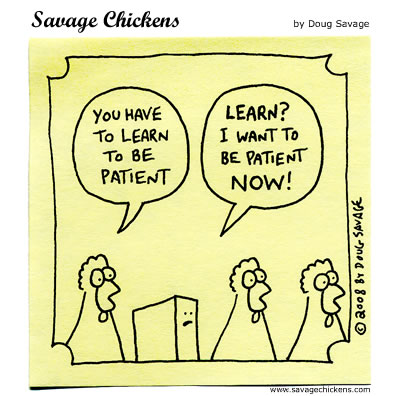 Some years ago I met a grad student at the U.S.’s main national scholarly conference in our field — “the big show” is what we’d call it if we were baseball players — who knew some of my friends in the profession and who bumped into me while walking through the book display. Being new to the conference-scene, he asked me a question:
Some years ago I met a grad student at the U.S.’s main national scholarly conference in our field — “the big show” is what we’d call it if we were baseball players — who knew some of my friends in the profession and who bumped into me while walking through the book display. Being new to the conference-scene, he asked me a question:
So how do I present a paper here next year?
Professionalizing grad students, something I’ve tried to do despite not supervising grad students much in my own career, is crucial; but the question struck me as carrying with it an odd sense of entitlement and impatience, as if the person who asked it failed to appreciate fully that an academic organization of, what?, 10,000 or 15,000 members that has an annual meeting with only several hundred slots on the program might be a petty competitive setting for someone who has yet to actually start their career. As someone who was then early in my own career, working to write and teach, and who had not really appeared much on the annual program despite having been lucky enough to have had some early publishing success, I wasn’t really sure how to answer.
So, as I recall, I thought for a moment, standing there in the book display, and replied something like the following:
Well, you come again next year and try to find a program unit here that overlaps somehow with what you do and then you go to all its sessions and just sit at the back of the room quietly. You do that again next year, and maybe the year after, though maybe you try to ask a question after one of the papers eventually. Each year you sign the sheet they pass around, so that you get on the mailing list. Then, you start going to the business meeting after their last session each year, and, in 3 or 4 years, maybe you can get elected to the program committee, where you might suggest a topic or theme for the next year’s call for papers. And then, after all that, maybe you can submit something of your own and get a paper on the program.
I was being sarcastic, yes. And sure, grad students who are still developing their research, still figuring out how to approach their topic, can submit a paper out of the blue to some group at the national conference, which of course works for some people — though it fails way more often than it works since there are far fewer slots than there are submissions, large numbers of which are from more experienced and more credentialed people (whether that means more qualified or not I leave to you to decide), all of whom are also trying to present their research at the annual conference, thereby getting their name in print on the program (which some schools use as the indicator that allows you to get funds to travel to the meeting, indicating that there are many different reasons why people try to get a paper accepted). So, opting for a strategy other than cold calling at the national meeting might be more profitable (e.g., start with the regional meeting…), at least for those who are patient enough and who also understand that networking and collaborating are also essential skills to develop in any career.
It was the “next year” part of that question that pushed me a bit over the edge, suggesting to me an attitude that failed to understand the long term, incremental nature of the profession — we’re all in it for the long haul and so I think we each need to approach our own situation with an awareness that we’re in an institution with rules of its own, rules that we need to learn if we’re hoping to tweak them to our advantage in the future. Sure the job market is tight but that means it’s filled with all kinds of really qualified people, so start local, be patient, keep at it.